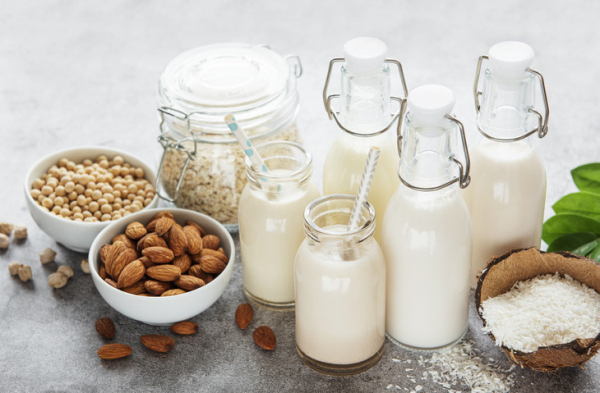
For many of us, a trip to the doctor’s office produces anxiety: What do my blood results mean? Will my doctor think this bump is cancer? The physical exam can make us feel vulnerable and may involve mild discomfort, so we may shower, shave, and put on better-than-average clothes before heading out for our physical in an attempt to minimize this discomfort.
However, it’s the intimate discussions — whether a crushing depression, escalating alcohol use, or sexual problems — when our palms really start to sweat. These difficult discussions can be more comfortable and productive when we know what to expect.
Sex
Most people do not volunteer their sexual history, so be prepared for your doctor to ask you a few questions directly as part of your comprehensive exam. Doctors ask all patients about their sexual history, regardless of age, gender, and marital status. (This blog post has some tips for talking about sex with your doctor if you are in the LGBTQ+ community.)
As a psychiatrist, I routinely discuss sexual activity with my patients, as changes in mood, substances, and many medications can affect sexual functioning. For example, the most commonly prescribed class of antidepressants, the selective serotonin reuptake inhibitors (SSRIs), are more likely to lower libido than to treat depression. (They achieve remission in approximately 30% of patients — but they cause sexual dysfunction in 60% to 70%.)
What your doctor may ask: The five Ps: partners (number and gender), practices (what kind of sexual contact), protection (method of contraception), past history of sexually transmitted infections (STIs), and pregnancy. Your doctor may also ask about medications or supplements that can affect libido.
What your doctor needs to know: Your doctor needs to understand your risk of getting an STI, including any risky behaviors or substance use. In addition, your doctor needs to hear about any changes in libido, problems achieving orgasm, difficulties maintaining an erection, or a delay in ejaculation. This information helps your doctor think through contributing causes, including your hormone levels, medical conditions, and medications.
Substance use
This is another tricky topic, as almost everyone minimizes their substance use. Most people understand that smoking or excessive alcohol is not good for them — it’s not a matter of education. In fact, patients may avoid revealing their use because they don’t want their doctors to “educate” them.
People using substances often experience shame, one of the strongest negative emotions we can feel, and something people go to great lengths to avoid. It’s helpful to remember the role of your doctor: it’s not to judge, and certainly not to reprimand. Assuming you trust your doctor, it can help to think of your doctor as an ally. Together you can brainstorm ways to decrease use (harm reduction) or to discontinue use altogether, when you are ready.
What your doctor may ask: It is standard practice to ask about tobacco, alcohol, and illicit drug use. If you drink alcohol, smoke, or use substances, be prepared for your doctor to ask detailed questions about the quantity, frequency, attempts to cut down, and cravings.
What your doctor needs to know: The truth! Try to think about the past week and count the total drinks/cigarettes/pills consumed. Also let your doctor know whether you are interested in cutting down or discontinuing use altogether. Your doctor can work with you to optimize your treatment, whether it’s medications to reduce your cravings or connecting you to support groups.
Mental health
Most primary care clinics routinely screen all patients for depression, and some may screen for anxiety disorders as well. If you screen positive, your doctor will almost certainly ask you more questions about your mood, whether you are experiencing anxiety, and even whether you have experienced hallucinations or paranoia. This is not because your doctor thinks you’re crazy; rather, these symptoms may accompany severe illness and could affect treatment decisions.
What your doctor may ask: To assess for depression, your doctor will ask about your sleep, appetite, interest in activities, feelings of guilt, and any changes in concentration or energy level. Your doctor will also ask whether you have experienced thoughts about ending your life. These questions can feel probing and intimate — especially if you came to the doctor’s office for an unrelated complaint, such as heartburn. However, your doctor is asking these questions to develop a better understanding about the length and severity of your symptoms in order to make the correct diagnosis. Here too, it’s helpful to think about your doctor as an ally. If you’re worried about this information going into your medical record, you can request this information to be marked as sensitive. No one is allowed to see your medical records without your permission, unless they are caring for you.
What your doctor needs to know: Sometimes depressed mood and anxiety can be related to an underlying medical illness such as heart, lung, or thyroid problems. Mention any physical symptoms you have noticed, even if they seem unrelated. If this is your first episode of feeling anxious or depressed, think about any life events that could be contributing (such as a recent break-up, job loss, or move), as this may help your doctor in differentiating between an adjustment disorder and a major depressive episode. Talk about your coffee habits and alcohol use, which can affect sleep and anxiety.
The bottom line
Sharing the most intimate details of your life with your doctor is understandably nerve-racking. Rest assured your doctor will keep this information confidential, unless there is a risk you could seriously harm yourself or others. It helps to realize that doctors talk about sex, substances, and mental health with almost all of their patients, and they will meet you where you are. Try to relax, take a deep breath, and remember: the doctor is on your side.


